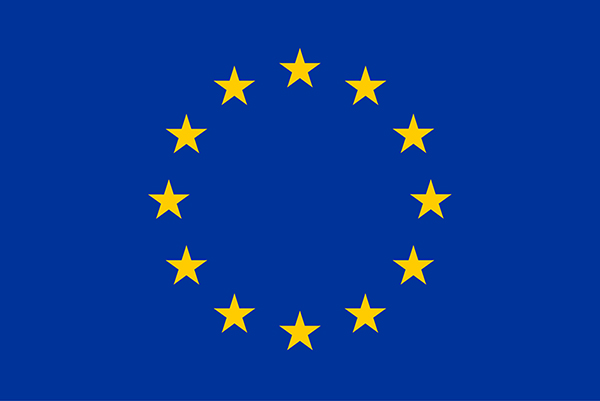Запрошуємо,
Гість
Digital Habits Transforming Consumer Behavior Across Europe
7 місяців 1 тиждень тому
#702
European consumers have undergone a major shift in how they access, interact with, and manage digital services. From online banking to streaming platforms, the expectation for smooth, personalized experiences is shaping industries in subtle but powerful ways. Norway, known for its forward-thinking approach to technology, is among the nations leading this transformation, blending innovation with everyday functionality across a variety of sectors.
One of the most visible changes is the growing demand for tailored, mobile-first services. As users spend more time online—working, learning, shopping, or enjoying entertainment—the need for intuitive platforms that simplify complex tasks is paramount. Norwegians, in particular, are known for their high digital literacy and fast adoption of new tools that help manage everything from personal finances to digital identity. This user behavior influences how platforms are designed and what features are prioritized.
Mobile banking is one area that has seen rapid growth in Norway and throughout Europe. Fintech services now compete not only with traditional banks but with each other, offering increasingly advanced features. Among the most popular tools is Revolut, a digital finance app that appeals to users through its ease of use, multi-currency capabilities, and robust security features. While many use it for travel, shopping, and subscription services, its relevance is expanding into digital entertainment spaces as well.
This brings us to a unique aspect of digital evolution: the rise of platform-specific guides and services tailored to national audiences. As cross-border access to online entertainment and service platforms increases, so does the need for local guidance. For Norwegian users who value safety and simplicity, resources such as Revolut casino guider for nordmenn help navigate international services with greater confidence. These guides are not about gambling strategies but focus instead on how to use financial tools securely and responsibly in entertainment environments.
Throughout Europe, this kind of localized assistance is gaining traction. While the digital economy is global, user expectations are often shaped by national habits and regulations. A Norwegian consumer may look for transparency and security, while someone in Italy might prioritize design and user experience. The ability to tailor guides and services to regional standards and user preferences is quickly becoming a competitive advantage.
Another major force driving consumer behavior is the integration of digital payments into daily life. Whether buying groceries, ordering takeout, or paying for streaming content, users expect transactions to be smooth, instantaneous, and trackable. Revolut and similar services offer the tools to do exactly that—budget tracking, instant notifications, virtual cards for added protection, and exchange-rate clarity for those using international services.
This financial empowerment translates to greater freedom in how people explore digital spaces. Norwegian users, for instance, are increasingly likely to engage with European platforms offering multilingual content, personalized recommendations, and cross-device compatibility. This behavior is mirrored in cities like Helsinki, Amsterdam, and Vienna, where digital citizens blend local lifestyles with global access.
Design and branding also play key roles in this new digital behavior. Platforms targeting European users—especially those in Northern Europe—often adopt minimalist interfaces, privacy-forward messaging, and easy onboarding processes. Norwegian consumers typically value efficiency over visual complexity, which is reflected in how local apps and international services catering to Norway are structured.
On the business side, this shift in digital habits is encouraging companies to rethink user experience from the ground up. Businesses are investing in better UX research, collaborating with cultural consultants, and using AI to analyze regional user behavior. Whether launching a travel app, a streaming service, or a financial management tool, understanding local habits is now a prerequisite for success.
Interestingly, this attention to cultural nuance is also changing how entertainment services operate. While many platforms offer identical core services across borders, they are increasingly introducing country-specific guides, curated content, and localized support. Norwegian users browsing European digital platforms can now expect information in their native language, support that complies with local financial law, and features adapted to their lifestyle.
Education around digital tools is another area seeing growth. Many consumers, particularly in Scandinavia, are eager to understand how to manage their data, secure their financial information, and use fintech responsibly. This is where specialized resources like Revolut casino guider for nordmenn serve a broader function: helping users navigate not only financial services but also broader digital ecosystems with confidence and clarity.
As digital lifestyles become more sophisticated, the line between finance, entertainment, and everyday services continues to blur. What matters most to modern users—especially in countries like Norway—is the ability to engage safely, efficiently, and with a sense of control. Whether making a purchase, subscribing to a service, or exploring international entertainment platforms, tools that prioritize user trust and usability will continue to shape the future of Europe’s digital landscape.
One of the most visible changes is the growing demand for tailored, mobile-first services. As users spend more time online—working, learning, shopping, or enjoying entertainment—the need for intuitive platforms that simplify complex tasks is paramount. Norwegians, in particular, are known for their high digital literacy and fast adoption of new tools that help manage everything from personal finances to digital identity. This user behavior influences how platforms are designed and what features are prioritized.
Mobile banking is one area that has seen rapid growth in Norway and throughout Europe. Fintech services now compete not only with traditional banks but with each other, offering increasingly advanced features. Among the most popular tools is Revolut, a digital finance app that appeals to users through its ease of use, multi-currency capabilities, and robust security features. While many use it for travel, shopping, and subscription services, its relevance is expanding into digital entertainment spaces as well.
This brings us to a unique aspect of digital evolution: the rise of platform-specific guides and services tailored to national audiences. As cross-border access to online entertainment and service platforms increases, so does the need for local guidance. For Norwegian users who value safety and simplicity, resources such as Revolut casino guider for nordmenn help navigate international services with greater confidence. These guides are not about gambling strategies but focus instead on how to use financial tools securely and responsibly in entertainment environments.
Throughout Europe, this kind of localized assistance is gaining traction. While the digital economy is global, user expectations are often shaped by national habits and regulations. A Norwegian consumer may look for transparency and security, while someone in Italy might prioritize design and user experience. The ability to tailor guides and services to regional standards and user preferences is quickly becoming a competitive advantage.
Another major force driving consumer behavior is the integration of digital payments into daily life. Whether buying groceries, ordering takeout, or paying for streaming content, users expect transactions to be smooth, instantaneous, and trackable. Revolut and similar services offer the tools to do exactly that—budget tracking, instant notifications, virtual cards for added protection, and exchange-rate clarity for those using international services.
This financial empowerment translates to greater freedom in how people explore digital spaces. Norwegian users, for instance, are increasingly likely to engage with European platforms offering multilingual content, personalized recommendations, and cross-device compatibility. This behavior is mirrored in cities like Helsinki, Amsterdam, and Vienna, where digital citizens blend local lifestyles with global access.
Design and branding also play key roles in this new digital behavior. Platforms targeting European users—especially those in Northern Europe—often adopt minimalist interfaces, privacy-forward messaging, and easy onboarding processes. Norwegian consumers typically value efficiency over visual complexity, which is reflected in how local apps and international services catering to Norway are structured.
On the business side, this shift in digital habits is encouraging companies to rethink user experience from the ground up. Businesses are investing in better UX research, collaborating with cultural consultants, and using AI to analyze regional user behavior. Whether launching a travel app, a streaming service, or a financial management tool, understanding local habits is now a prerequisite for success.
Interestingly, this attention to cultural nuance is also changing how entertainment services operate. While many platforms offer identical core services across borders, they are increasingly introducing country-specific guides, curated content, and localized support. Norwegian users browsing European digital platforms can now expect information in their native language, support that complies with local financial law, and features adapted to their lifestyle.
Education around digital tools is another area seeing growth. Many consumers, particularly in Scandinavia, are eager to understand how to manage their data, secure their financial information, and use fintech responsibly. This is where specialized resources like Revolut casino guider for nordmenn serve a broader function: helping users navigate not only financial services but also broader digital ecosystems with confidence and clarity.
As digital lifestyles become more sophisticated, the line between finance, entertainment, and everyday services continues to blur. What matters most to modern users—especially in countries like Norway—is the ability to engage safely, efficiently, and with a sense of control. Whether making a purchase, subscribing to a service, or exploring international entertainment platforms, tools that prioritize user trust and usability will continue to shape the future of Europe’s digital landscape.

Цей веб-сайт був розроблений та підтримується за фінансової підтримки Європейського Союзу. Його зміст є виключною відповідальністю Університету





